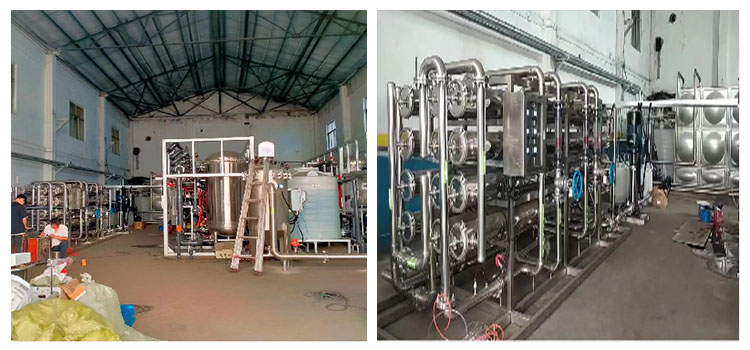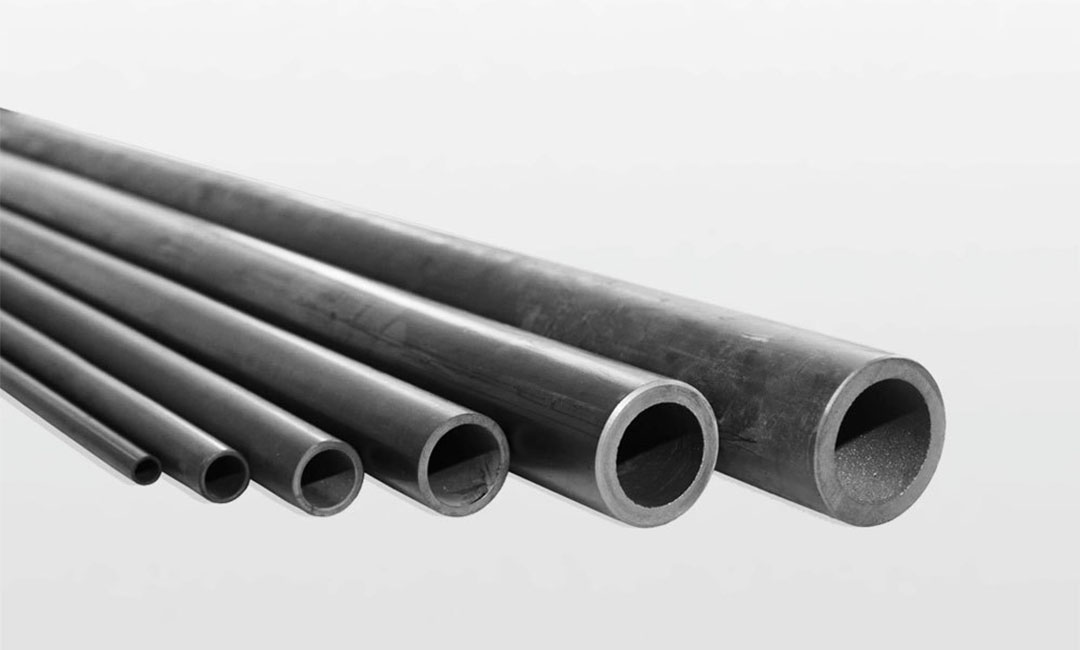Benefits of Using Chemical-Resistant SiC Membranes in Industrial Applications
Chemical-resistant SiC membranes are becoming increasingly popular in industrial applications due to their ability to withstand harsh environments. These membranes offer a range of benefits that make them an ideal choice for industries that deal with corrosive chemicals and high temperatures.

One of the key advantages of using chemical-resistant SiC membranes is their exceptional resistance to corrosion. Unlike traditional materials such as stainless steel or polymers, SiC membranes are not affected by most chemicals, including strong acids and bases. This makes them highly reliable and durable, even in the most aggressive industrial environments.
In addition to their resistance to corrosion, SiC membranes also have excellent thermal stability. They can withstand extreme temperatures without losing their structural integrity or performance. This is particularly important in industries where high temperatures are involved, such as petrochemical refining or metal smelting. SiC membranes can handle the heat without any degradation, ensuring continuous and efficient operation.
Another benefit of using chemical-resistant SiC membranes is their high mechanical strength. These membranes are incredibly robust and can withstand high pressures without breaking or deforming. This makes them suitable for applications that require filtration under high pressure, such as wastewater treatment or chemical processing. SiC membranes can handle the demanding conditions without compromising their performance.
Furthermore, SiC membranes have a unique property called hydrophilicity, which means they have a strong affinity for water. This property allows them to effectively separate water from other substances, making them ideal for water treatment applications. SiC membranes can remove impurities, particles, and even bacteria from water, ensuring clean and safe drinking water or process water in industrial settings.
In terms of maintenance, chemical-resistant SiC membranes offer significant advantages. Due to their resistance to corrosion and fouling, these membranes require less frequent cleaning and replacement compared to other materials. This not only reduces downtime and maintenance costs but also improves overall operational efficiency. Industries can rely on SiC membranes for long-term use without worrying about frequent replacements or repairs.
Additionally, SiC membranes have a compact design, which means they occupy less space compared to other filtration systems. This is particularly beneficial in industries where space is limited, such as offshore oil and gas platforms or compact industrial plants. SiC membranes can be easily integrated into existing systems, providing efficient filtration without taking up excessive space.
In conclusion, chemical-resistant SiC membranes offer numerous benefits for industrial applications. Their exceptional resistance to corrosion, thermal stability, mechanical strength, and hydrophilicity make them a reliable choice for industries dealing with harsh environments. Furthermore, their low maintenance requirements and compact design contribute to improved operational efficiency. As industries continue to face challenges related to chemical exposure and high temperatures, SiC membranes provide a solution that ensures reliable and efficient filtration.
Case Studies of SiC Membranes Successfully Handling Harsh Chemical Environments
Chemical-resistant silicon carbide (SiC) membranes have become increasingly popular in industrial applications due to their ability to withstand harsh chemical environments. These membranes are made from a combination of silicon and carbon, which gives them exceptional resistance to corrosion and chemical attack. In this article, we will explore some case studies of SiC membranes successfully handling harsh chemical environments.
One notable case study involves a chemical processing plant that was experiencing frequent membrane failures due to the corrosive nature of the chemicals being processed. The plant decided to switch to SiC membranes, and the results were impressive. The SiC membranes were able to withstand the harsh chemicals without any signs of degradation, leading to a significant reduction in maintenance costs and downtime.
Another case study involves a wastewater treatment facility that was struggling to find a membrane material that could handle the high levels of chlorine and other disinfectants in the water. After switching to SiC membranes, the facility saw a dramatic improvement in membrane performance. The SiC membranes were able to maintain their integrity even in the presence of high concentrations of disinfectants, leading to improved water quality and reduced operating costs.
In a similar case study, a pharmaceutical manufacturing plant was facing challenges with membrane fouling and degradation due to the aggressive solvents used in the production process. By switching to SiC membranes, the plant was able to eliminate membrane fouling and extend the lifespan of the membranes. This not only improved the efficiency of the production process but also reduced the plant’s environmental impact by minimizing the use of harsh chemicals.
One of the key advantages of SiC membranes is their high chemical resistance, which allows them to be used in a wide range of industrial applications. From chemical processing plants to wastewater treatment facilities, SiC membranes have proven to be a reliable and cost-effective solution for handling harsh chemical environments. The ability of SiC membranes to withstand corrosive chemicals and aggressive solvents makes them an ideal choice for industries where traditional membrane materials may fail.
In conclusion, SiC membranes have shown great promise in handling harsh chemical environments in various industrial applications. The case studies discussed in this article highlight the effectiveness of SiC membranes in withstanding corrosive chemicals, disinfectants, and solvents. By choosing SiC membranes, industries can improve their operational efficiency, reduce maintenance costs, and minimize their environmental impact. As the demand for chemical-resistant membranes continues to grow, SiC membranes are likely to become an increasingly popular choice for industries looking to protect their equipment and processes from the damaging effects of harsh chemicals.
Future Developments and Applications of Chemical-Resistant SiC Membranes in Industrial Settings
Chemical-resistant SiC membranes are becoming increasingly popular in industrial settings due to their ability to withstand harsh environments. These membranes are made from silicon carbide, a material known for its exceptional chemical resistance and durability. In this article, we will explore the future developments and applications of chemical-resistant SiC membranes in industrial settings.

One of the key advantages of SiC membranes is their resistance to a wide range of chemicals, including acids, bases, and organic solvents. This makes them ideal for use in industries where corrosive substances are present, such as the chemical, pharmaceutical, and petrochemical industries. SiC membranes can be used to filter and separate these substances without being damaged or degraded, ensuring the integrity of the filtration process.
In addition to their chemical resistance, SiC membranes also offer excellent mechanical strength and thermal stability. This allows them to operate at high temperatures and pressures, making them suitable for a variety of industrial applications. For example, SiC membranes can be used in high-temperature filtration processes, such as the separation of hot gases or liquids in industrial furnaces and reactors.
Another important feature of SiC membranes is their high permeability and selectivity. These membranes have a porous structure that allows for the efficient filtration of particles and molecules of different sizes. This makes them ideal for applications where precise separation is required, such as the purification of water, chemicals, and pharmaceuticals. SiC membranes can remove impurities and contaminants from liquids and gases, ensuring the quality and purity of the final product.
The future developments of chemical-resistant SiC membranes in industrial settings are focused on improving their performance and efficiency. Researchers are working on developing new membrane materials and structures that enhance their filtration capabilities and durability. For example, nanostructured SiC membranes with enhanced surface properties are being investigated for their potential to improve separation efficiency and reduce fouling.
Furthermore, advancements in membrane fabrication techniques, such as 3D printing and nanotechnology, are enabling the production of custom-designed membranes with tailored properties. These membranes can be optimized for specific industrial applications, such as the separation of specific chemicals or the removal of specific contaminants. By fine-tuning the membrane structure and composition, researchers can create membranes that offer superior performance and longevity in harsh industrial environments.
The applications of chemical-resistant SiC membranes in industrial settings are vast and diverse. They can be used in a wide range of industries, including water treatment, food and beverage, pharmaceuticals, and electronics. SiC membranes are used for various processes, such as filtration, separation, purification, and concentration. They can remove impurities from liquids and gases, recover valuable materials from waste streams, and ensure the quality and safety of industrial products.
In conclusion, chemical-resistant SiC membranes are a valuable asset in industrial settings due to their exceptional chemical resistance, mechanical strength, and thermal stability. The future developments and applications of SiC membranes are focused on enhancing their performance and efficiency through advanced materials and fabrication techniques. With their versatility and reliability, SiC membranes are poised to play a crucial role in the future of industrial filtration and separation processes.

